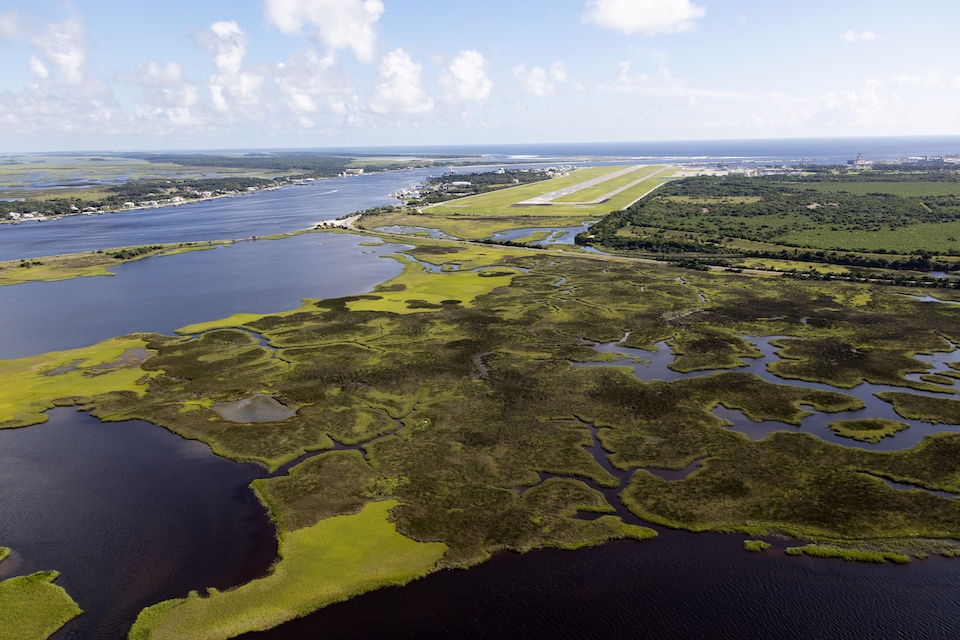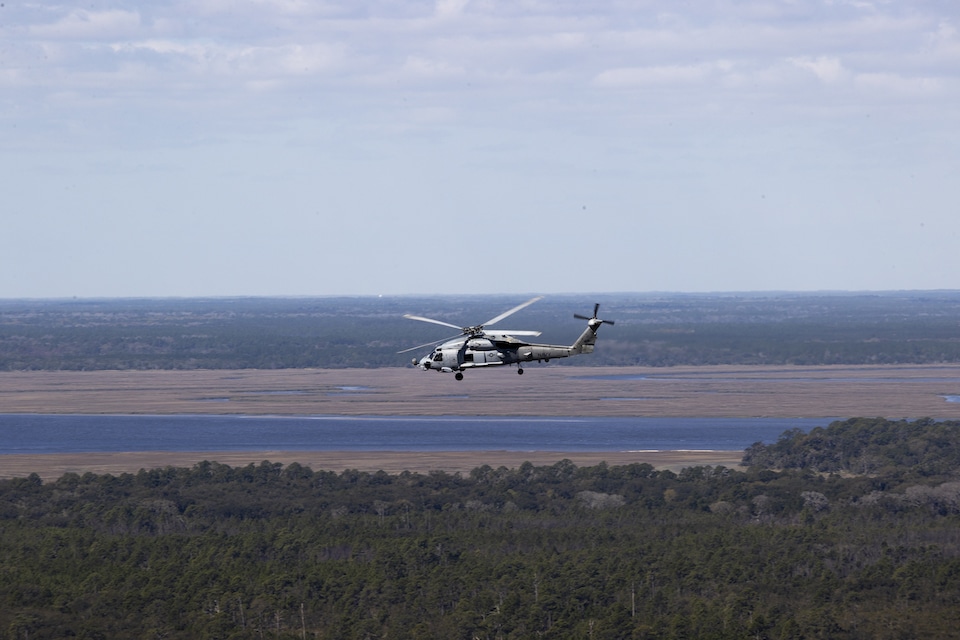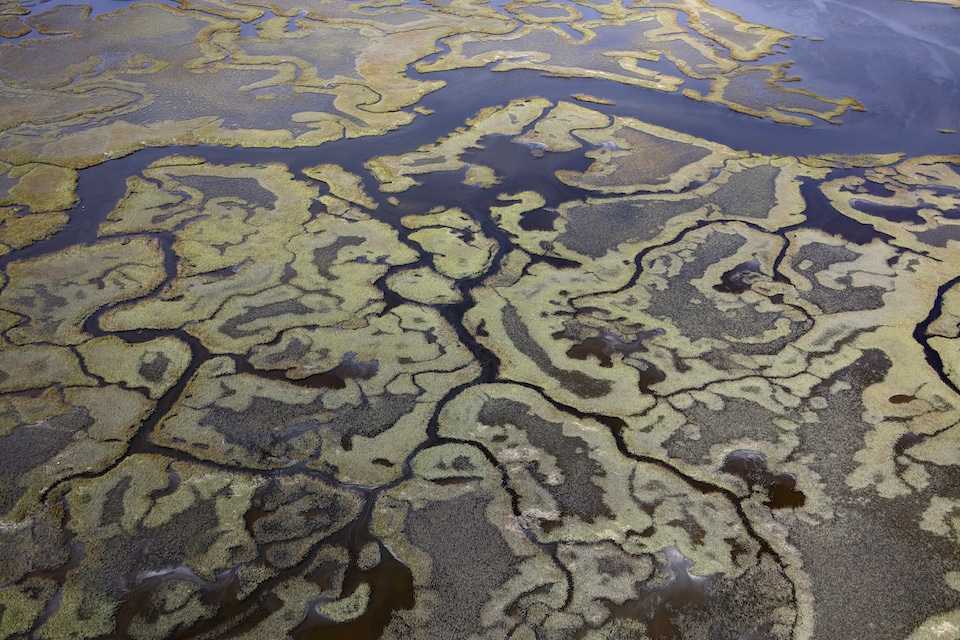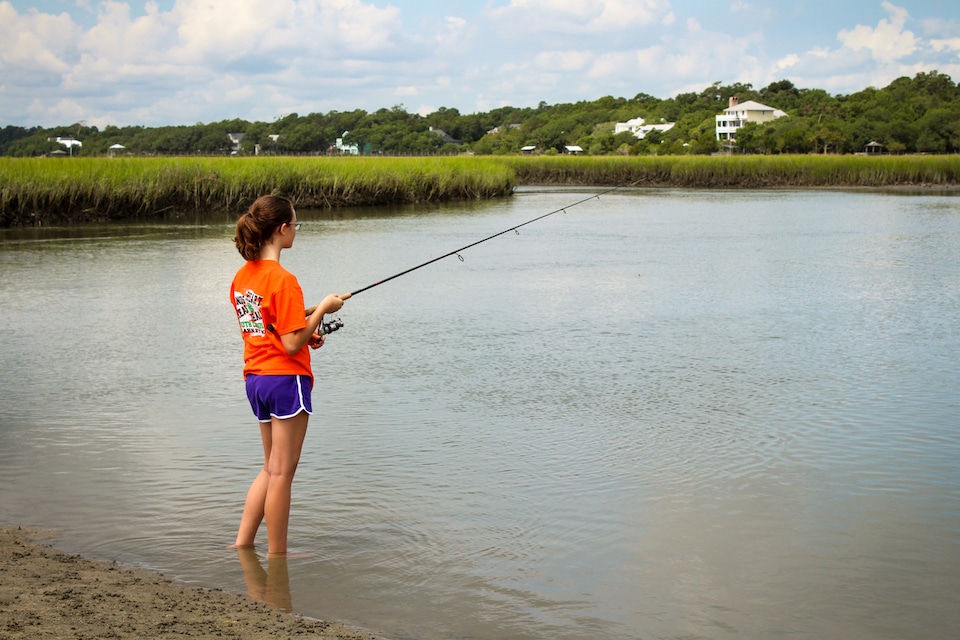A coalition of more than 300 military and government officials, community leaders, conservationists, scientists, fishermen and others today released a plan to save the future of a million-acre expanse of salt marsh stretching from North Carolina to east-central Florida–nearly the size of Grand Canyon National Park.

The South Atlantic Salt Marsh Initiative’s plan, roughly two years in the making, calls for protecting the sinewy channels of coastal grasslands for their value in reducing flooding and erosion while providing wildlife habitat important for recreational and commercial fishing, hunting, birding, eco-tourism and other activities that support coastal businesses and economies.
The plan lays out key strategies, objectives and actions ranging from elevating roads to conserving land near marshes so the tidal wetlands can move as sea levels rise. (Please see the executive summary for a full list.) The marshes are threatened by rising seas, polluted runoff and unsustainable development. The voluntary plan calls for close collaboration between SASMI partners, local communities and governments to identify and implement the tactics best suited for each location. And it includes suggestions for securing funding, improving development planning processes and educating and engaging communities in the co-creation of salt marsh conservation projects.

The coalition was brought together by The Pew Charitable Trusts and the Southeast Regional Partnership for Planning and Sustainability (SERPPAS), whose members include the U.S. Department of Defense and other federal agencies along with state environmental and natural resource officials from across the Southeast. The Defense Department hosts more than a dozen installations on or near the Southeast coast and some, such as Parris Island Marine Corps Recruit Depot in South Carolina, already are experiencing flooding and other effects of rising seas.
“The Department of Defense relies on healthy, functioning ecosystems to support our mission readiness. But these ecosystems and the services they provide are changing rapidly, and no entity, area or activity is going to be immune to effects of these changes,” said Richard Kidd, SERPPAS principals co-chair and Deputy Assistant Secretary of Defense for Environment and Energy Resilience. “Specifically, for military installations along the coasts the DoD is concerned about saltwater intrusion, sea level rise, and storm surge. As the sea advances, and salt marshes migrate it compresses existing infrastructure and encroaches on our installations. So we need to not only preserve salt marsh to serve as a buffer for our installations, but also ensure that migration can occur without conflicting other land uses. We know it’s going to take cooperation and partnerships to address these issues, and this conservation plan is a significant step toward planning for the future.”

“The International Game Fish Association (IGFA) applauds the South Atlantic Salt Marsh Initiative’s commitment to protect this vital ecosystem. As a global leader in recreational angling, we understand the critical role salt marshes play in supporting a wide variety of fish species, many of which are integral to our community of anglers. These habitats are not only nurseries for young fish but also a line of defense against flooding and erosion, thus contributing to the health and resilience of our coastal communities,” said IGFA President Jason Schratwieser. “We look forward to continuing our support of this initiative and working together to promote sustainable practices and raise awareness about the importance of salt marshes to our fisheries and our planet.”

The South Atlantic coast also is home to millions of coastal residents, including the Gullah/Geechee Nation — descendants of enslaved Africans and indigenous Americans who are intimately linked to the salt marsh. Chieftess Queen Quet, who works to protect the sacred lands and waterways of her people, served on the initiative’s steering committee because she recognizes the value of salt marshes to the sustainability of her homeland, for food security and Gullah/Geechee spiritual practices.
The initiative will work with its partners throughout the region to implement the plan. Initial meetings will be scheduled in each state in coming months to discuss the plan and develop next steps.
The Women's Outdoor News, aka The WON, features news, reviews and stories about women who are shooting, hunting, fishing and actively engaging in outdoor adventure. This publication is for women, by women. View all posts by The WON